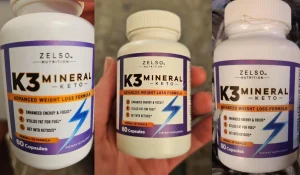Is watermelon acidic? A simple answer to this question will be no. Watermelon is one of the fruits with low levels of acidity. Watermelon is often perceived as a highly acidic fruit due to its vibrant color and taste. The scientific evidence tells us that it only has a pH range of 5.18 to 5.60 which is a sign of low acidity. This level of pH is not particularly high, so you can include watermelon in a stomach-friendly diet.
This article aims to explore the relationship between watermelon and acidity while analyzing factors such as its pH levels, nutritional profile, and health benefits.
What Makes Watermelon Low-Acidic?
You know the pH scale ranges from 0-14, any level that falls above 7 is known as alkaline in nature and less than 7 is acidic. However, the level of acidic nature varies according to the pH scale. pH of a fruit can make a profound impact on its flavor, preservation, and how it interacts with the body.

As mentioned earlier the pH range of watermelon falls between 5.18 to 5.60 which makes it one of the lower acidic fruits. The range will vary depending on factors including the production method and variety of fruit. Due to its low acidic nature, people have been eating melons to reduce acid reflux. The acidic level of watermelon is generally well tolerated by most individuals.
Factors Influencing The pH of Watermelon
Watermelon is a sweet and hydrating fruit with a lot of health benefits. It does possess a degree of acidity but several factors can influence its pH level. The acidic content of a ripe watermelon will be different from unripened fruit.
The pH will also vary based on the variety of the fruit, the growing conditions, and cultivation practices. It is known that certain varieties of watermelon display different levels of acidity.
Some varieties exhibit high levels of pH compared to others. The green-banded watermelons show slightly heightened acidity compared to green watermelons. The sweetness of the fruit will also help you determine the pH level, if the melon is sweet normally the acidity will be lower. Despite its acidity, watermelons are considered a healthy fruit. Let’s explore the health benefits of them in the coming section.
Top 5 Health Benefits Of Watermelons
They are rich in vitamins, minerals, and antioxidants. Besides, the water content of watermelon makes it the perfect fruit to have during summer days to stay hydrated and healthy. Here are some of the top health benefits offered by watermelons.
1. Keeps You Hydrated
A fully ripe watermelon contains 92% water, which makes this fruit an excellent choice to stay hydrated. Eating watermelon or drinking watermelon juice during a hot day or after a strenuous exercise routine will help curb dehydration and make you feel fresh.
2 Nutritional Support
Watermelon is packed with essential nutrients, minerals, and antioxidants. It contains potassium, magnesium, vitamin A, and vitamin C in abundance.
Additionally, it has antioxidants like lycopene and beta-carotene which help to reduce inflammation. The citrulline found in the fruit is an incredible amino acid that can help to improve exercise performance.
3. Improve Heart Health
Watermelon is a rich source of antioxidants, lycopene is the top antioxidant found in the fruit. It can help to reduce the risk of heart disease by regulating cholesterol levels. It also has the potential to regulate blood pressure. Besides enhanced heart health, eating watermelon will help reduce the risk of stroke. Studies have shown that lowering cholesterol levels and blood pressure is the key to improving an individual’s heart functions.
4. Promotes Healthy Digestion
Plenty of water and fiber content found in the watermelons promote healthy digestive functions. Water and fiber help to optimize poor digestion and alleviate the symptoms of constipation. A moderate consumption of watermelon can support gut health and regular bowel movement.
5. Aid Skin and Hair Health
Vitamin A and vitamin C are two of the best nutrients that can improve your skin health. Watermelons have a great concentration of these nutrients. It promotes the production of collagen. Collagen is a protein found in your body and it is essential for maintaining healthy skin and hair. Watermelon also contains antioxidants that help to protect the skin from UV rays and other harmful pollutants.
Studies have also shown that melons are able to provide other advantages such as overall eye wellness, muscle recovery, weight management, and anti-inflammatory properties.
Conclusion
In conclusion, watermelons are low acidic fruits with a pH level between 5.18 and 5.60. The mode of production, variety, sweetness, and growing conditions will influence the level of acidity in watermelons to an extent. However, generally, this fruit is safe for most people. However, if you suffer from acid reflux or GERD you need to control the intake of them.







